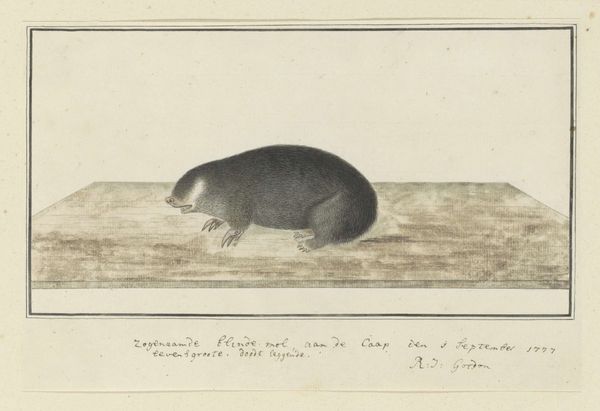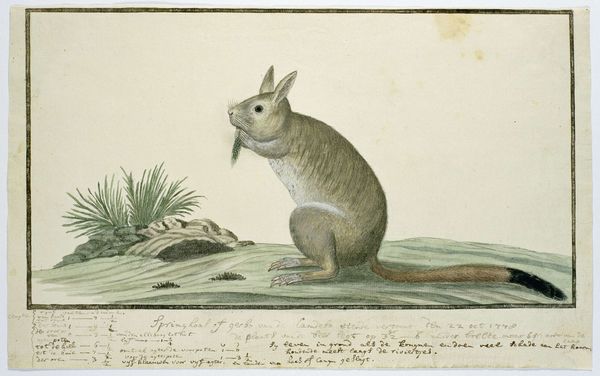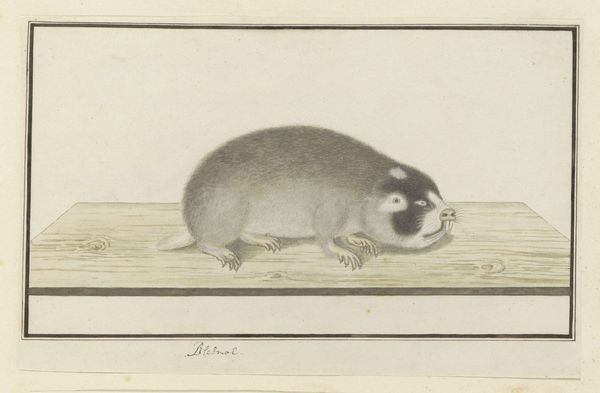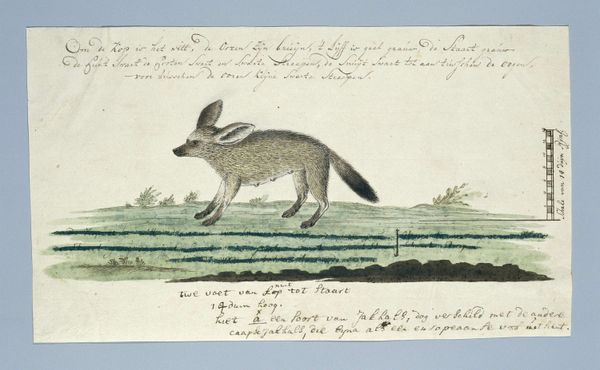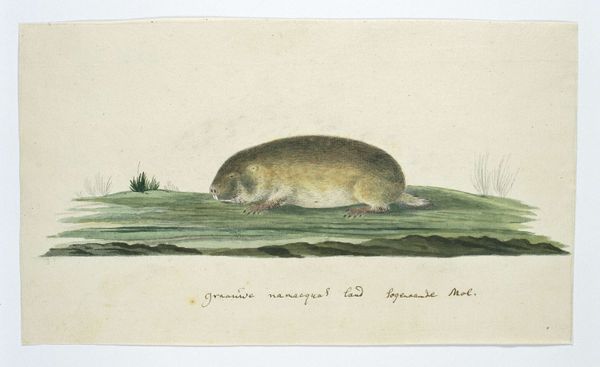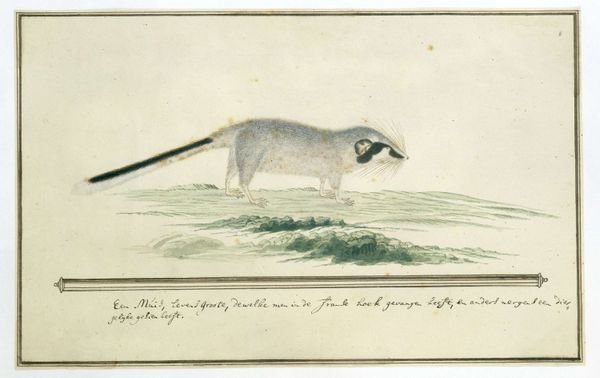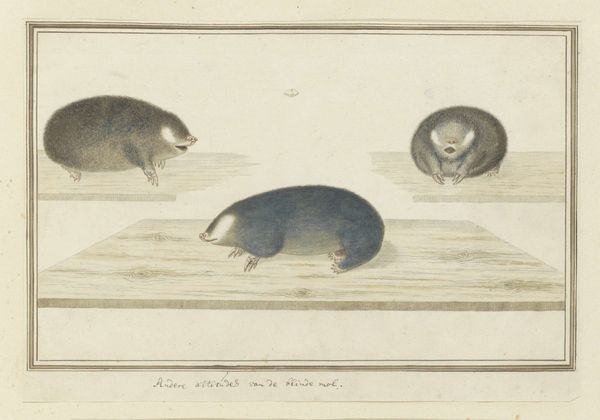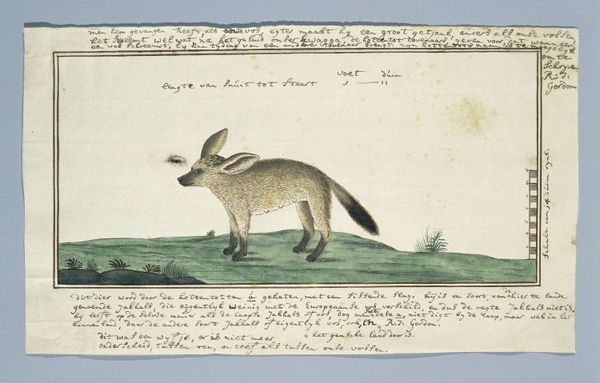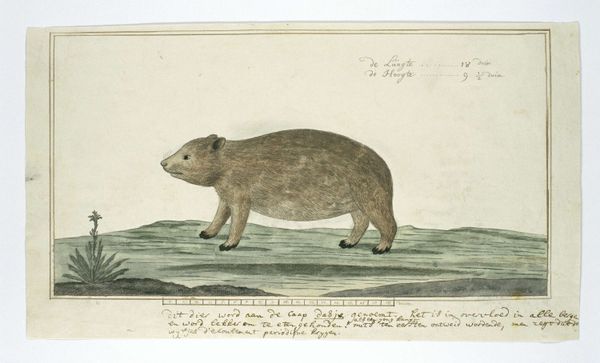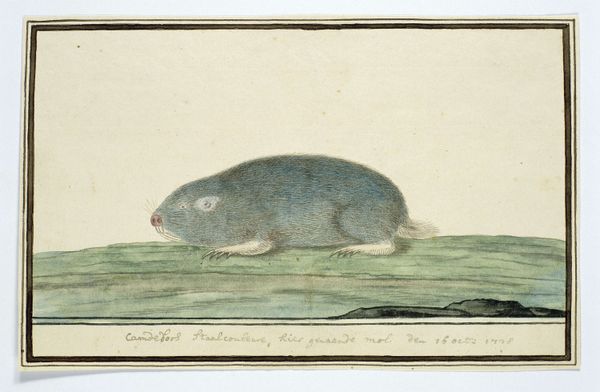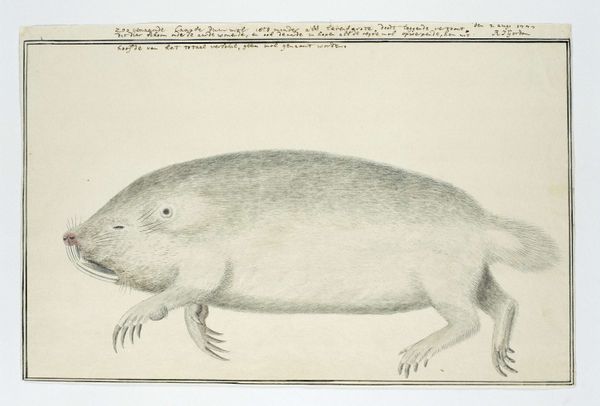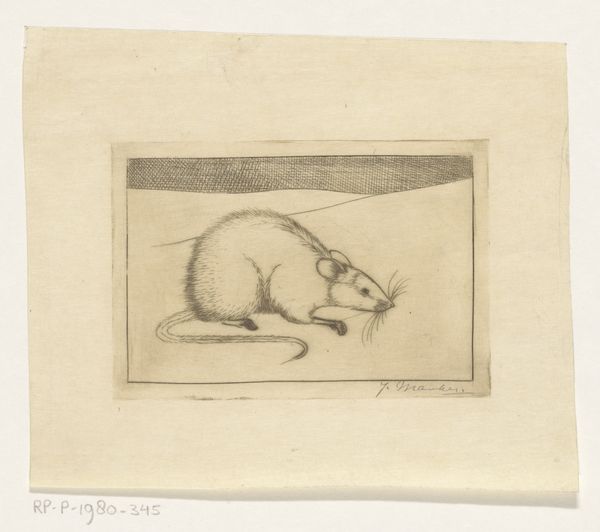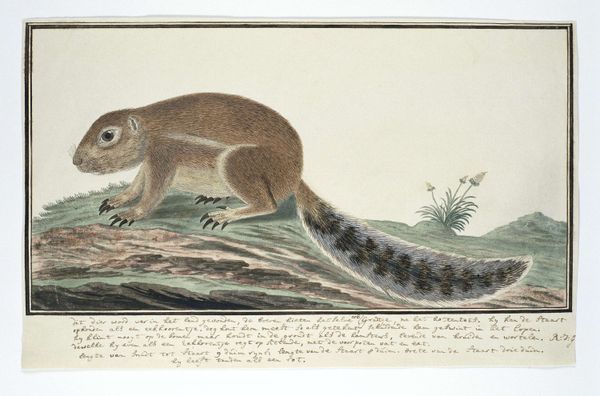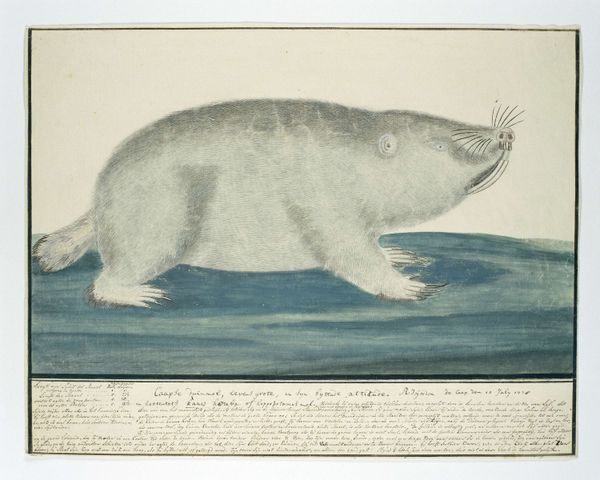
drawing, paper, ink, pencil
#
pencil drawn
#
drawing
#
pencil sketch
#
landscape
#
paper
#
personal sketchbook
#
ink
#
journal
#
pencil
#
naturalism
#
watercolor
Dimensions: height 660 mm, width 480 mm, height 224 mm, width 369 mm, height 161 mm, width 291 mm
Copyright: Rijks Museum: Open Domain
Robert Jacob Gordon created this drawing of a Cape mole-rat in South Africa in 1779. Gordon was a Dutch military officer and explorer, and his work reflects the scientific interests of the Enlightenment, alongside the colonial project. The image, with its meticulous detail, serves as a form of documentation. But what does it mean to document nature? Gordon's drawing embodies a desire to classify and understand the natural world, but also to possess it, within a colonial context. The mole-rat, carefully rendered, becomes an object of study, detached from its environment. The detailed annotations accompanying the image highlight the importance of empirical observation. They also reflect the institutional structures of science at the time, with their emphasis on categorization. To fully appreciate this work, one might consider how natural history museums and botanical gardens developed during this period. The complex interplay between scientific inquiry, colonial power, and the representation of nature has shaped the world we live in today.
Comments
No comments
Be the first to comment and join the conversation on the ultimate creative platform.
